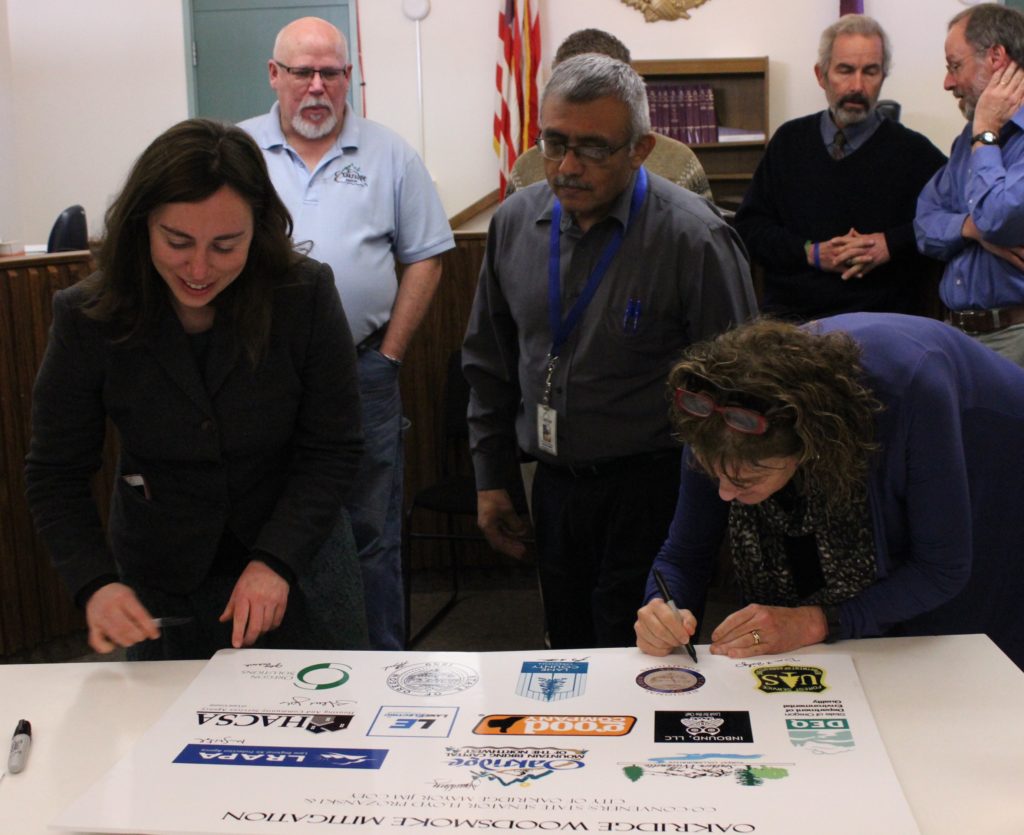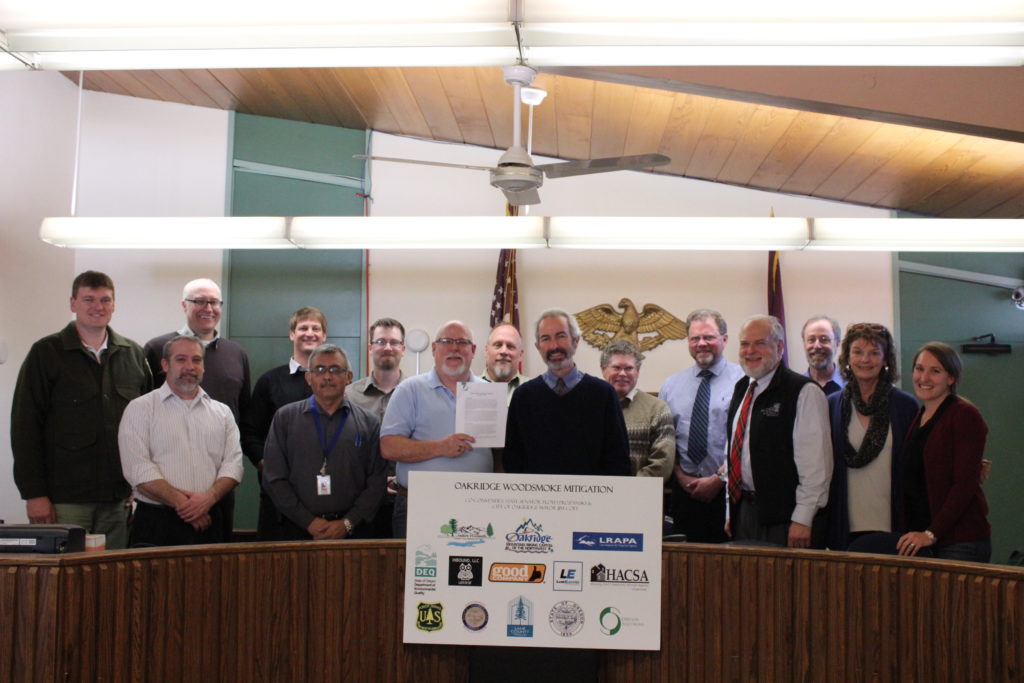Local climate and topography make the area around Oakridge, Oregon, prone to wintertime temperature inversions, low wind speeds and poor atmospheric dispersion that translate into poor air quality during the winter months, when many residents use wood stoves as their primary source of heat. Poor air quality disproportionately impacts the most vulnerable in the community including low-income residents, children, and seniors. Based on the last three years of air quality sampling results ending in 2016, EPA recently moved Oakridge from non-attainment into attainment status, which was a major victory for the community. However, the clock has restarted on assessing attainment status, and if it is not met again, it would limit business expansion and economic growth opportunities as well as disqualify Oakridge from receiving federal funds. Thus, a local work group has developed a multilevel strategy to improve air quality conditions through education, enforcement, and wood stove change-outs and weatherization.
The Oregon Solutions process brings together local and regional partners to bolster local resources by developing a road map for implementation to meet the PM 2.5 air quality standards through collaboration with other government, business, and nonprofit groups to identify and agree upon voluntary measures to improve air quality in Oakridge.
Oakridge Woodsmoke Mitigation Project Files (Google Drive)
Declaration of Cooperation (PDF)
Declaration of Cooperation Signing (Oakridge City Hall, December 7, 2017)
Photo Credit: Lane Regional Air Protection Agency




